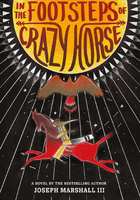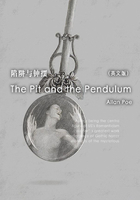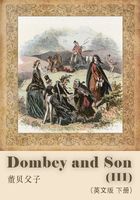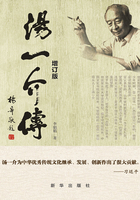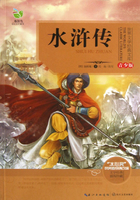It is necessary to suppose a space of some three days between that word with which SECTION ONE so inscrutably finishes and these I write today. I was interrupted. Ye gods, how my head aches, do I but turn my neck! There's no doubt I have had the devil of a thump, all unlooked for. I contrive to write in my bunk, for Phillips has given me a board to rest across my knees and done what he calls "chocking off" my back with an extra granite pillow or two. Fortunately, or unfortunately, I suppose I should say, the ship has little movement as far as I am concerned tho' the wind is pushing her back towards the doldrums, the devil take it all, twenty thousand times over! At this rate we shall reach the Antipodes when they are having their winter down there, a prospect I do not care for and neither do the seamen who have heard too much about the horrors of the Southern Ocean at that season! Summers came to visit me directly I was well enough to curse and told me with a painful smile that Captain Anderson refused the suggestion of the river Plate but had now conceded the possibility of calling at the Cape of Good Hope if we can get there.
"We are in some danger then?"
For a while he did not answer.
"A little. As ever. Do not, I beg of you—"
"Spread despondency among the other passengers."
He laughed at that.
"Come, you are better."
"If only I could make some connection between my tongue and the inside of my skull—do you know, Charles, I speak with the outside of myself?"
"It is the effect of concussion. You will be better presently. Only do not, I beg of you, perform any more acts of selfless heroism."
"You are roasting me."
"At all events, your head will not take any more cracks over it, let alone your spinal column."
"It is very true that I have a headache always on call, or on tap if you like and have only to move my neck so—ah, devil take it!"
He went away, and I set myself to the task of recording our adventure. I had been sitting at my writing-flap and idling with my pen, when the angle of the deck beneath my chair began to change. Since for days together we had made a dreary series of zigzags, or legs or beats or whatever the appropriate Tarpaulin is, I thought nothing of this at first. But then my posteriors (which have become a perfected seaman in their own right) felt the movement to be speedier than usual. Nor were there the usual concomitants of the operation such as boatswains' pipes, adjurations to the duty watch, leathery flapping of feet and the shivering of sails. There was instead a sudden and positive thunder from our canvas which ceased on the instant and with that cessation my perfected seaman informed me that our deck was tilting more and more rapidly, more urgently. I have become a writer; and my first movement was to jam my pen in the holder and cork the ink bottle. By the time I had done this I was dropped against my bunk ... there was noise enough now—shouts, whistles, thumps and crashes—and screams from the next hutch where my onetime inamorata, Zenobia, was screaming in approximate unison with Mr Brocklebank's alleged wife. I scrambled up the deck, contrived to get my door open and went, spiderlike, towards the daylight of the waist.
As they say in practically every travel book I have ever read, what a sight now met my eyes, my blood froze, my hair—and so on. The whole scene was changed beyond recognition. What had been comparatively level planking was now sloped like the pitch of a roof and increasing fast towards the perpendicular. I saw, with the kind of cool reason which stemmed from my own helplessness, that we were lost. We were going over, capsizing. All our sails were bulging the wrong way, all the wrong ropes were taut and all the right ones flogging like the ties of a rick cover come apart in a gale. Our lee bulwarks were nearing the sea. Then there came—not so much from "up there" as "out there"—a slow grinding and tearing and splintering. Somewhere forrard, the huge beams that look so small and are called "topmasts" swung sideways and hung down in a positive knitting of ropes and torn canvas. On the windward bulwarks there were a few men struggling now with ropes. One, near the break of the fo'castle, I saw striking out with an axe. Above me I saw what I still find difficult to credit: the ship's wheel spun so that the two men holding it were flipped away like raindrops, the one farthest from me into the air and over the wheel to land somewhere on the other side of it, the nearer man flung down against the deck as if struck by lightning. With the spinning of the wheel there came a most dreadful thudding from the rudder. I saw Captain Anderson himself let a rope go from a belaying pin and fling himself recklessly to haul on another ... I got there myself and hauled too. I felt the rope move with our combined strength but—as I am told—the rope he had flung loose was flailing in that area, for I felt a terrible blow on the top of my head and back. I will not subscribe to the commonplace of "From that moment I knew no more" but certainly, what I did know was confused and hazy enough. It seems to me that somehow I became entangled on the deck with young Mr Willis. Apart from the devil of a pain in my back and a loud singing in my head I was almost comfortable. That was Mr Willis, of course, on whom I was lying. In any other circumstances I would not have chosen or endured Mr Willis as a mattress, but as it was I felt a positive anger at the ineffectual efforts the boy made to get out from under me. Then someone pulled at him and in a trice I had no pillow but a deck I now felt to be level once more. I opened my eyes and stared up. There were white clouds and blue sky. There was the mizzenmast, its sails not furled but bunched up against the yards. Further forrard, part of the mainmast still stood and with the lower sails also bunched but with the topmast hanging down in the kind of tangle for which seamen have a number of expressive terms. The fore-topmast was down too, but that had fallen free and lay partly outboard and partly on the fo'castle across the capstan. I shut my eyes against the light and lay, waiting for my various pains to subside. I could hear, but distantly, Captain Anderson giving a continual stream of orders. I have never understood him so little nor liked him so well. His voice resounded with calmness and confidence. Then, believe it or not, there came a moment among a whole volley or broadside of orders when he paused and remarked in a more localized and conversational tone of voice: "Look to Mr Talbot there." What a tribute! Phillips leaned over me but I was not to be outdone in nobility.
"Let me be, fellow. There must be others in a far worse case than I."
I am thankful to say that this had no effect on Phillips, who was endeavouring to insert some relatively soft material between my head and the deck. I felt a little better for it. The scarlet pulsation behind my forehead faded to pink.
"What the devil happened?"
There was a pause. Then—
"I can't say, sir. Directly we was on an even keel I came to look for you immediate."
I flexed one leg then the other. They seemed uninjured, as did my arms. The rope had done no more than scorch my palms a trifle. It seemed that I had got off from the catastrophe whatever it was with no more than a sore head and a shaking.
"You should be looking to the ladies, Phillips."
He made no reply but inserted yet another fold of material between my head and the deck. I opened my eyes again. The hanging topmast was already being lowered inch by inch. Sailors were crowded among what was left of our rigging. I lifted my head painfully and was just in time to see the broken fore-topmast brought inboard and freed from the capstan. It was splintered and projected a yard or two over the waist. Above me the gaff of the driver had been lowered on its boom. I remembered the towering sails that had bulged over me as she put her bulwarks down till the sea foamed over them.
"What happened?"
"A ship full of fucking soldiers if you don't mind me saying so, sir."
I felt a great disinclination to move my body and did no more than raise my head further to look round. The result was a stab of the most excruciating pain which I have ever experienced—a kind of bright dagger of it thrust through my head. I gave up any further attempt and lay still. Summers and the captain were speaking fluent Tarpaulin with much earnestness. If the gudgeons were not too badly drawn—if she was not too severely wrung. Experimentally I moved my eyes so that I could see the two officers and found the action not accompanied by much pain. I heard what they said. Mr Talbot had most handsomely endeavoured to help the captain at a maincourse buntline until rendered unconscious by a flying sheet. Mr Summers would have expected no less of me. Mr Summers begged to be allowed to continue his duties, which request was granted. I was about to try sitting up when the captain spoke again.
"Mr Willis."
Mr Willis was standing by the abandoned wheel which was turning gently, this way and that. I was about to point out this awful neglect to the captain when two seamen came bounding up the ladder and laid hands on the wheel from either side.
"Mr Willis!"
Normally Mr Willis, one of our midshipmen, is of a pale complexion. Either the blow to my head had confused my eyes or Willis had in reality turned bright green.
"How many times do I have to address you before I get an answer?"
Poor young Willis got his lips together, then opened them. His knees, I believe, were supporting each other.
"Sir."
"You were on watch."
"Sir, Mr, sir, he, Mr—"
"I know all about 'he', Mr Willis. You were on watch."
Nothing emerged from Mr Willis's mouth but a faint clucking. Captain Anderson's right arm swung round and his palm struck the boy's face with a loud crack! He seemed to leap into the air, travel sideways and collapse.
"Get up, sir, when I am talking to you! Do you see those topmasts, you damned young fool? Get up! Have you any idea at all how much canvas has flogged into ribbons, how much hemp there is now good for nothing but stuffing fenders? By God, sir, when we have a mizzen masthead again you shall spend the rest of the commission there!"
"Sir, Mr, Mr—"
"Get him, Willis, do you hear? I want him standing in front of me and I want him now!"
I had not thought that so much anger and menace could be expressed in a single syllable. It was Captain Anderson's famous roar, an awful sound, and I felt that to lie still with my new reputation for valour was best. I kept my eyes closed and it was for this reason that I heard the following conversation though I saw neither party to it. There were stumbling steps, then Deverel's voice at once slurred and breathless.
"Damme, what's the boy done now, curse him!"
Anderson answered him angrily but in a low voice as if he did not wish the conversation to be overheard.
"Mr Deverel, you were on watch."
Deverel replied in as low a voice.
"There was young Willis—"
"Young Willis, by God, you fool!"
"I'll not—"
"You'll listen. There's a standing order against leaving a midshipman on watch at sea."
Deverel's voice rose to a sudden shout.
"Everyone does it! How else are the brats to learn?"
"So the officer of the watch can sneak off and swill himself into a wardroom stupor! I got on deck while she was still shivering and by God you weren't there! You come stumbling, you, you sot—"
"I'll not be called that by you or any man! I'll see you—"
Anderson raised his voice.
"Lieutenant Deverel. Your absence from the deck when you were on duty was criminal neglect. You may consider yourself under open arrest."
"Then sod you, Anderson, you sodding by-blow!"
There was a pause in which I did not dare even to breathe. Anderson spoke coldly.
"And, Mr Deverel, you are forbidden drink."
*
Phillips and Hawkins, the captain's servant, got me back to my bunk. I feigned as much unconsciousness as I could from policy. There must now be, I thought, a court-martial and I wanted to be no part of it as witness or anything else. I allowed myself to be revived with brandy, then grasped Phillips's sleeve to detain him.
"Phillips. Does my back bleed?"
"Not as I've seen, sir—"
"I was struck over the head and shoulders with a flying rope and rendered wholly unconscious. I feel cut to the very bone."
"Oh," said he, with great cheerfulness, "you was struck with a rope's end—what we call a starter, sir. It's what the last man down gets across his back or his bum, begging your pardon, sir. That don't hardly more than bruise, sir."
"What happened to us?"
"When, sir?"
"The accident, man, our broken masts—my aching head!"
So Phillips told me.
Taken aback. I was taken aback, thou wast, he, she or it was taken aback. I remember my lady mother telling her woman—"but when I heard what the creature wanted for a yard of the stuff, exquisite though it was, I declare to you, Forbes, I was quite taken aback!" That, from my dear mother who allowed me to travel on the Continent during the late peace but cautioned me against going too near the fence round the vessel! What a language is ours, how diverse, how direct in indirection, how completely, and, as it were, unconsciously metaphorical! I was reminded of my years of turning English verse into Latin or Greek and the necessity of finding some plain statement which would convey the sense of what the English poet had wrapped in the brilliant obscuration of figures! Of all human activities how we have chosen time and again to turn to our experience of the sea! To be three sheets in the wind, to sail too near the wind, to recognize someone by the cut of his jib, to be brought up all standing, to be adrift, to be on the rocks, to be half-seas over, to be sunk without trace—good Lord, we might fill a book with the effect on our language of the sea affair! Now here was metaphor come across at its origin. We, our ship, had been taken flat aback! Lying in my bunk I pictured it all. Deverel had nipped below for a dram, leaving the half-witted Willis in charge of the ship. Good God, as I thought of it my head throbbed anew. My country, said I to myself as I tried to attain to a state of good humour—my country might have suffered a notable deprivation. I might have drowned! So, with Willis on watch there had come a change, a confusion of the waves on the leeward bow, some foam, a squall, the water cuffed rapidly with two invisible hands that came even more rapidly nearer—those two fellows at the wheel would glance from the shivering leach of the main to the compass—glance round perhaps for Deverel and find only Willis with his mouth hanging open—would look for authority and find none—had they borne down on the wheel and brought her bows round to meet the squall they might fear flogging for it—so they did nothing because Willis did nothing and the squall struck into the wrong side of our sails which being sheeted home stopped her dead, then bore her back and down, sails bellied the wrong way, bulwarks forced down till the sea lipped over them, our rudder working in reverse!
So, while the crew laboured to undo the work which Deverel and Willis had achieved between them by a few seconds' inattention, I lay and waited for the throbbing in my head to cease which it partly did at length but only when I had got to sleep. The last thing I remember thinking before I slept was what a wealth of unexpected experience had come to me through that simple phrase "taken aback!"


